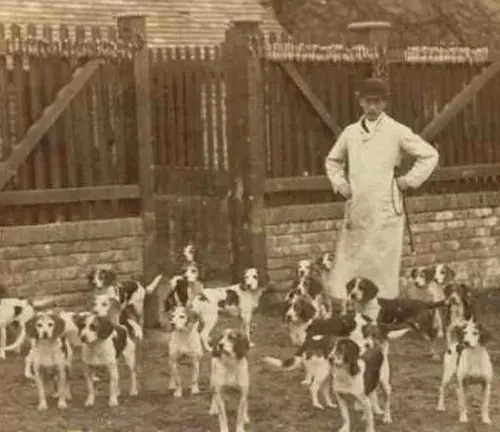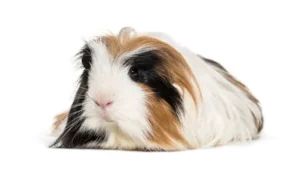Beagles Dog
- January 31, 2024
- 0 comment
Beagles are a beloved and charming breed of dogs known for their friendly and outgoing nature. These small to medium-sized canines have captured the hearts of dog enthusiasts worldwide. One of the defining features of Beagles is their distinctive appearance, characterized by expressive eyes, droopy ears, and a wagging tail that never fails to bring a smile. Beagles have a rich history as hound dogs originally bred for hunting small game. They are renowned for their exceptional sense of smell, making them excellent scent hounds.

However, Beagles are not just skilled hunters; they are also cherished family pets known for their gentle and affectionate disposition. They get along well with children and other pets, making them an ideal choice for families. Beagles are active dogs that thrive on exercise and play, so they require regular physical activity to keep them happy and healthy. With their low-maintenance short coat and endearing personality, Beagles have a way of becoming loyal and cherished members of their families, bringing joy and companionship to their owners’ lives.
| Attribute | Specifications |
|---|---|
| Size | Small to medium-sized breed |
| Weight | 20-30 pounds (9-13.6 kilograms) |
| Height | 13-15 inches (33-38 centimeters) |
| Coat | Short, dense, and weather-resistant |
| Coat Colors | Tri-color (black, white, and tan) |
| Lifespan | 12-15 years |
| Temperament | Friendly, outgoing, and gentle |
| Intelligence | High intelligence with a stubborn streak |
| Activity Level | Energetic and playful |
| Exercise Needs | Requires at least one hour of daily exercise |
| Socialization | Gets along well with children and other pets |
| Grooming Needs | Low maintenance, regular brushing and occasional baths |
| Health Concerns | Prone to hip dysplasia, ear infections, and obesity |
| Trainability | Intelligent but may be stubborn, consistent training is key |
| Purpose | Originally bred for hunting small game, now popular as a family pet |
| Popularity | Among the top 10 most popular breeds in the United States |
| Barking Tendency | May be vocal with their distinctive baying howl |

Beagles are a breed that’s both charming and full of character. They’re known for their expressive eyes, droopy ears, and wagging tails that never fail to put a smile on your face. Let’s dive into the world of Beagles and uncover the secrets behind their popularity.
History of Beagles
Beagles have a rich history that dates back centuries. Originally bred for hunting purposes, they have always been known for their remarkable scenting abilities. In this section, we’ll explore how these hounds evolved into the loving companions we know today.


Physical Characteristics
What do Beagles look like? Their appearance plays a significant role in their charm. From their small, muscular bodies to their coat patterns, we’ll take a close look at the physical attributes that make Beagles stand out.
Temperament and Personality
Beagles are renowned for their friendly and outgoing personalities. Discover what makes them such wonderful family pets and learn about their quirks and characteristics that set them apart from other breeds.


Training and Socialization
Training a Beagle can be both rewarding and challenging. We’ll provide valuable insights into how to effectively train your Beagle and ensure they are well-socialized from a young age.
Nutritional Needs
Proper nutrition is vital for the health and well-being of your Beagle. We’ll discuss their dietary requirements and offer tips on feeding to keep them happy and healthy.


Exercise and Activity
Beagles are an active breed that loves to explore and play. Learn about their exercise needs and discover creative ways to keep them mentally and physically stimulated.
Health Concerns
Like all breeds, Beagles can be prone to certain health issues. We’ll outline common health concerns and provide guidance on how to maintain their well-being.
- Hip Dysplasia: Beagles may be at risk for hip dysplasia, a hereditary condition where the hip joint doesn’t develop properly. This can lead to pain and arthritis in the hips.
- Ear Infections: Beagles have long, floppy ears that can trap moisture, leading to ear infections. Regular cleaning and proper ear care are essential.
- Obesity: Beagles have a hearty appetite, and without proper portion control and exercise, they can become overweight. Obesity can lead to various health issues.
- Epilepsy: Some Beagles may be prone to seizures or epilepsy, a neurological disorder. Medication and veterinary care are necessary to manage this condition.
- Eye Conditions: Beagles can be susceptible to eye problems such as glaucoma, cataracts, and cherry eye. Regular eye examinations are important.
- Hypothyroidism: This condition occurs when the thyroid gland doesn’t produce enough hormones. It can lead to weight gain, lethargy, and skin problems.
- Allergies: Beagles can develop allergies to various substances, including food, pollen, or environmental factors. Allergic reactions may manifest as skin issues or digestive problems.
- Intervertebral Disc Disease (IVDD): IVDD is a condition where the spinal discs degenerate, leading to back pain and potentially paralysis. It can affect Beagles, especially in their later years.
- Heart Disease: Some Beagles may be at risk for heart conditions such as mitral valve disease. Regular veterinary check-ups can help detect and manage heart issues.
- Dental Problems: Beagles can be prone to dental issues like gum disease and tooth decay. Regular dental care, including brushing and dental check-ups, is crucial.
Grooming Requirements
Beagles have a low-maintenance coat, but grooming is still necessary. We’ll share tips on keeping your Beagle looking and feeling their best.
- Regular Brushing: Beagles have short, dense coats that shed moderately. Regular brushing helps remove loose hair and keeps their coat healthy. Aim to brush your Beagle at least once a week to reduce shedding.
- Bathing: Beagles typically don’t require frequent baths unless they get exceptionally dirty. Use a mild dog shampoo to avoid drying out their skin. Bathe them every 2-3 months or as needed.
- Ear Cleaning: Beagle’s long, floppy ears can trap moisture and become a breeding ground for ear infections. Clean their ears regularly with a veterinarian-recommended ear cleaner to prevent issues.
- Nail Trimming: Keep your Beagle’s nails trimmed to a comfortable length. Overgrown nails can cause discomfort and affect their gait. If you’re unsure, consult your veterinarian or a professional groomer.
- Dental Care: Dental hygiene is essential. Brush your Beagle’s teeth regularly using a dog-specific toothbrush and toothpaste. Dental chews and toys can also help reduce plaque buildup.
- Eye Care: Keep an eye on their eyes for any signs of irritation or discharge. If you notice persistent issues, consult your veterinarian. Regular eye cleaning can help prevent problems.
- Nutrition: Provide a balanced diet with high-quality dog food. Be sure to measure their portions to prevent overfeeding, which can lead to obesity. Consult your vet for dietary recommendations.
- Exercise: Beagles are active dogs and need regular exercise to stay fit and mentally stimulated. Daily walks and playtime in a secure area are essential.
- Hydration: Ensure your Beagle has access to fresh water at all times, especially after exercise and on hot days to prevent dehydration.
- Regular Vet Check-ups: Schedule regular veterinary check-ups to monitor your Beagle’s overall health and catch any issues early. Vaccinations, parasite control, and preventive care are crucial.
- Weight Management: Keep an eye on their weight and body condition. Maintaining a healthy weight is essential to prevent obesity-related health problems.
- Socialization: Beagles thrive on social interaction. Allow them to interact with other dogs and people regularly to prevent behavioral issues.
- Mental Stimulation: Beagles are intelligent and curious. Provide mental stimulation through interactive toys and puzzles to prevent boredom.
- Love and Attention: Finally, Beagles are affectionate dogs that thrive on human companionship. Spend quality time with your Beagle, show them love, and create a strong bond.
Beagles as Family Pets

What’s it like to have a Beagle as a family pet? We’ll delve into their compatibility with families, children, and other pets.
- Friendly and Sociable: Beagles are known for their friendly and sociable nature. They often get along well with children and other pets, making them an excellent choice for families. Beagles thrive on companionship and enjoy being part of the family’s daily activities.
- Playful and Energetic: Beagles have a playful and energetic disposition. They love to engage in games and outdoor activities with family members. Providing regular exercise and playtime helps keep them happy and prevents boredom-related behavior issues.
- Scent Hounds: Beagles have an exceptional sense of smell and are natural scent hounds. They may follow their nose when outdoors, so it’s important to keep them in a securely fenced area or on a leash during walks. They can become easily distracted by interesting scents.
- Vocal and Expressive: Beagles are known for their distinctive baying howl, which they may use to communicate or when they sense something of interest. While they can be vocal, it’s part of their charm. Training and socialization can help manage their barking tendencies.
- Low Maintenance Coat: Beagles have a short, low-maintenance coat that doesn’t require excessive grooming. Regular brushing and occasional baths are usually sufficient to keep their coat in good condition. However, be prepared for some shedding, especially during seasonal changes.
Different Species
Classic Beagle
The Classic Beagle, also known as the Standard Beagle, is the breed that most people envision when they think of Beagles. These dogs are known for their compact size, tri-color coat, and expressive eyes. We’ll explore their history and why they are considered the quintessential Beagle.


Pocket Beagle
Pocket Beagles are the miniature version of the standard Beagle. These tiny canines have a rich history, originally bred to be even smaller than the typical Beagle. We’ll take a closer look at these pint-sized pups and their unique traits.
Harrier Beagle
Harrier Beagles, often confused with their smaller counterparts, have a distinct appearance and history. They are slightly larger and have different color patterns. Discover the story behind the Harrier Beagle and what sets them apart.


American Beagle
American Beagles are known for their hunting prowess and distinctive appearance. Learn about the specific traits that make them unique and their important role in American history.
English Beagle
English Beagles are famous for their strong scenting abilities and calm temperament. Find out why these Beagles are favored for hunting and companionship.

Frequently Asked Question (FAQs)
- What is the origin of the Beagle breed?
Beagles originated in England and were originally bred for hunting small game. - Are Beagles good with children?
Yes, Beagles are known for their friendly and gentle nature, making them great family pets. - How much exercise do Beagles need? Beagles are active dogs and require at least one hour of exercise per day to stay healthy and happy.
- Do Beagles shed a lot?
Beagles have a short coat and do shed, but their grooming needs are relatively low compared to some other breeds. - Can Beagles be left alone for long periods?
Beagles are social dogs and may become lonely if left alone for extended periods. It’s important to provide them with companionship and mental stimulation. - Are Beagles easy to train? Beagles can be a bit stubborn, but they are intelligent dogs. Consistent and patient training methods work best with them.
- Do Beagles get along with other pets?
Beagles are generally sociable and can get along well with other pets, but early socialization is essential. - What is the typical lifespan of a Beagle?
Beagles typically live for about 12 to 15 years, with proper care and a healthy lifestyle. - What are some common health issues in Beagles?
Beagles can be prone to certain health issues such as hip dysplasia, ear infections, and obesity. Regular veterinary check-ups are crucial for their well-being. - Are Beagles good watchdogs? Beagles are friendly and sociable, so they may not excel as watchdogs. They are more likely to greet strangers with wagging tails than guard the house.
- Do Beagles bark a lot?
Beagles have a distinctive baying howl, which they may use to communicate or when they sense something of interest. While they can be vocal, it’s not excessive barking. - Are Beagles suitable for apartment living?
Beagles can adapt to apartment living if they receive enough exercise and mental stimulation. However, they thrive in homes with access to a yard where they can explore. - What is the best diet for a Beagle?
Beagles should have a balanced diet with high-quality dog food. Consult your veterinarian for guidance on portion sizes and specific dietary needs. - Do Beagles have a strong sense of smell?
Yes, Beagles are known for their exceptional sense of smell, which makes them excellent scent hounds and hunters. - Are Beagles prone to obesity?
Beagles have a tendency to gain weight if their diet and exercise are not properly managed. It’s important to monitor their food intake and provide regular exercise.














Leave your comment